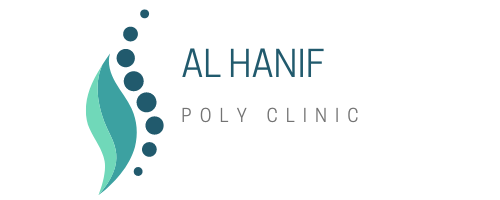
Introduction:
Traumatic Brain Injury (TBI) is a life-altering event that requires a multidisciplinary approach for effective rehabilitation. Among the various therapeutic interventions, physiotherapy plays a crucial role in promoting recovery and restoring functionality. This article explores the key aspects of physiotherapy management in treating Traumatic Brain Injury.
Understanding Traumatic Brain Injury:
Before delving into the physiotherapy interventions, it’s essential to grasp the nature of Traumatic Brain Injury. TBI can result from a range of incidents, such as falls, accidents, or sports-related injuries, causing damage to the brain tissue and affecting cognitive and physical functions.
Early Intervention and Assessment:
The first step in physiotherapy management is early intervention. Prompt assessment of the patient’s neurological and musculoskeletal status helps in tailoring a specific rehabilitation plan. Physiotherapists work closely with other healthcare professionals to gather comprehensive information about the extent of the injury.
Mobility and Motor Function Rehabilitation:
Physiotherapy aims to improve mobility and motor function, addressing challenges such as impaired coordination, muscle weakness, and balance issues. Structured exercises and targeted interventions assist patients in regaining control over their movements and enhancing overall motor skills.
Cognitive Rehabilitation through Physiotherapy:
TBI often leads to cognitive impairments, affecting memory, attention, and problem-solving abilities. Physiotherapists incorporate cognitive rehabilitation techniques into their sessions, fostering mental acuity and promoting cognitive recovery alongside physical rehabilitation.
Balance and Vestibular Rehabilitation:
Many individuals with TBI experience difficulties with balance and coordination. Physiotherapists employ vestibular rehabilitation techniques to address these issues, focusing on exercises that enhance balance, spatial orientation, and reduce dizziness, ultimately improving the patient’s overall stability.
Adaptive Techniques and Assistive Devices:
Physiotherapists may introduce adaptive techniques and recommend assistive devices to enhance the patient’s independence. This includes teaching compensatory strategies for daily activities and introducing tools that facilitate mobility, making day-to-day life more manageable.
Individualized Treatment Plans:
Recognizing that each TBI case is unique, physiotherapists create individualized treatment plans tailored to the specific needs and abilities of the patient. This personalized approach ensures that rehabilitation efforts are targeted and effective in promoting recovery.
Family and Caregiver Involvement:
Physiotherapy management extends beyond the clinic or hospital setting. Involving the patient’s family and caregivers is integral to ensuring continuity of care. Physiotherapists educate family members on supportive exercises, assistive techniques, and strategies to facilitate the patient’s rehabilitation at home.
Monitoring Progress and Adjusting Interventions:
Regular assessment of the patient’s progress is crucial in physiotherapy management. Physiotherapists continuously monitor improvements and adjust interventions accordingly, ensuring that the rehabilitation plan evolves with the patient’s changing needs.
Conclusion:
In the comprehensive management of Traumatic Brain Injury, physiotherapy plays a pivotal role in promoting physical and cognitive recovery. A collaborative approach, involving healthcare professionals, patients, and their support networks, enhances the effectiveness of physiotherapy interventions. Through targeted exercises, cognitive rehabilitation, and adaptive strategies, individuals with TBI can achieve meaningful progress on their journey to recovery.

binance
Your article helped me a lot, is there any more related content? Thanks!
Index Home
I don’t think the title of your article matches the content lol. Just kidding, mainly because I had some doubts after reading the article.
I was diagnosed with Parkinson’s disease four years ago. For over two years, I relied on prescription medications and therapies, but unfortunately, the symptoms continued to worsen. My mobility declined, tremors increased, and I experienced growing fatigue and discomfort that affected my daily life. Last year, out of desperation and hope, I decided to try an herbal treatment program from NaturePath Herbal Clinic. Honestly, I was skeptical at first, but within a few months of starting the treatment, I began to notice real changes. My energy improved, the discomfort eased, and I felt stronger and more capable in my daily life. Incredibly, I also regained much of my stamina, balance, and confidence. It’s been a life-changing experience I feel more like myself again, better than I’ve felt in years. If you or a loved one is struggling with Parkinson’s disease, I truly recommend looking into their natural approach. You can visit their website at http://www.naturepathherbalclinic.com
binance
Thanks for sharing. I read many of your blog posts, cool, your blog is very good.